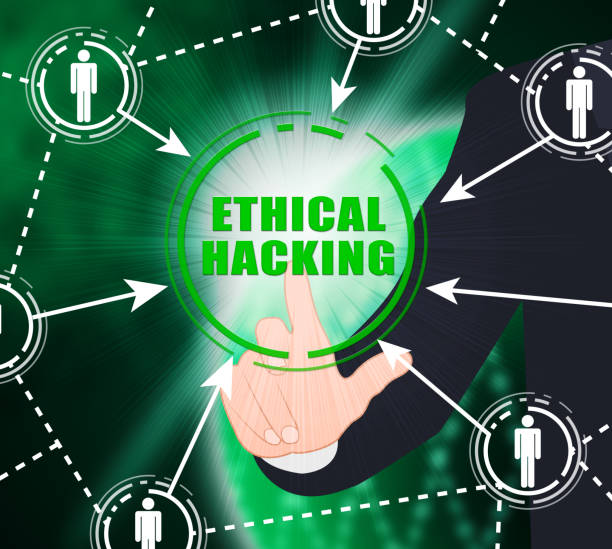
With cybercrime on the rise, ethical hacking has become a sought-after career in the tech industry. Certified Ethical Hackers (CEHs) play a vital role in protecting organizations from potential cyber threats by identifying vulnerabilities and offering solutions.
If you’re passionate about cybersecurity and want to turn it into a career, this guide will walk you through the steps to becoming a certified ethical hacker.
What Is Ethical Hacking?
Ethical hacking involves using the same techniques as malicious hackers to assess the security of a system, but with permission and the goal of improving defenses. Certified Ethical Hackers are trained professionals who identify vulnerabilities in systems, networks, or applications and help organizations mitigate risks.
Step 1: Understand the Role of an Ethical Hacker
Before diving into certifications and training, it’s essential to understand the responsibilities of an ethical hacker.
Key Responsibilities
- Conduct penetration testing to identify system weaknesses.
- Assess the security of networks, applications, and devices.
- Collaborate with security teams to implement safeguards.
- Stay updated on the latest hacking techniques and cybersecurity trends.
Understanding these tasks will help you determine if ethical hacking aligns with your career goals.
Step 2: Develop the Necessary Skills
To become an ethical hacker, you need to acquire a mix of technical and soft skills.
Technical Skills
Networking Fundamentals: Learn about network protocols, IP addresses, firewalls, and routers.
- Operating Systems: Master Linux and Windows as they are commonly used in ethical hacking.
- Programming Knowledge: Languages like Python, Java, and C are crucial for creating scripts and tools.
- Cryptography: Understand how encryption and decryption work.
- Web Application Security: Learn about vulnerabilities like SQL injection and cross-site scripting (XSS).
Soft Skills
- How to Become a Certified Ethical Hacker and analytical thinking.
- Attention to detail.
- Communication skills to explain technical issues to non-technical stakeholders.
Step 3: Gain Relevant Education
While a formal degree isn’t mandatory, having a background in computer science, information technology, or cybersecurity can provide a strong foundation. Many ethical hackers start with a bachelor’s degree in one of these fields.
For those without a degree, online courses and bootcamps offer a flexible way to learn the basics.
Step 4: Obtain Practical Experience
Hands-on experience is crucial to understanding real-world hacking scenarios.
Ways to Gain Experience
Participate in Capture the Flag (CTF) Competitions: These cybersecurity challenges simulate hacking environments.
- Join Bug Bounty Programs: Platforms like HackerOne and Bugcrowd allow you to find and report security vulnerabilities in exchange for rewards.
- Set Up a Home Lab: Practice penetration testing in a controlled environment using tools like Metasploit, Wireshark, and Kali Linux.
Step 5: Choose the Right Ethical Hacking Certification
Certifications validate your skills and make you stand out in the job market.
Top Ethical Hacking Certifications
- 1. Certified Ethical Hacker (CEH): Offered by EC-Council, this is the most recognized certification in the field.
- 2. CompTIA PenTest+: Focuses on penetration testing and vulnerability assessment.
- 3. Offensive Security Certified Professional (OSCP): Known for its hands-on approach, this certification is highly respected.
- 4. GIAC Penetration Tester (GPEN): Covers advanced penetration testing skills.
Each certification has its prerequisites, so ensure you meet them before enrolling.
Step 6: Enroll in Ethical Hacking Training
Preparation is key to passing certification exams. Consider enrolling in official training programs or online courses offered by platforms like:
- EC-Council’s Certified Ethical Hacking Course.
- Cybrary’s Ethical Hacking Courses.
- Udemy or Coursera for beginner-friendly options.
Step 7: Pass the Certification Exam
Certification exams typically involve a combination of multiple-choice questions and practical assessments. Dedicate time to study and practice using mock exams and study guides.
Step 8: Build a Portfolio and Network
After earning your certification, it’s time to showcase your skills and connect with industry professionals.
How to Build a Portfolio
- Document your bug bounty findings.
- Share your experiences and insights on a blog or LinkedIn.
- Participate in community forums like Reddit or cybersecurity groups.
- Networking with professionals can lead to job opportunities and mentorship.
Step 9: Apply for Ethical Hacking Roles
With your certification and experience, you’re ready to apply for ethical hacking positions. Common roles include:
- Penetration Tester.
- Security Analyst.
- Cybersecurity Consultant.
Highlight your certifications, hands-on experience, and technical skills in your resume.
Step 10: Keep Learning and Stay Updated
Cybersecurity is an ever-evolving field. Stay ahead by:
- Attending cybersecurity conferences like DEF CON or Black Hat.
- Subscribing to blogs like TechAfri for the latest updates.
- Pursuing advanced certifications to deepen your expertise.
Conclusion
Becoming a certified ethical hacker requires dedication, continuous learning, and hands-on experience. By following these steps, you’ll gain the skills and credentials needed to excel in this dynamic field. Ethical hacking not only offers a rewarding career but also allows you to make a significant impact in safeguarding digital environments.
At TechAfri, we’re here to guide you through your tech journey. Ready to explore more about cybersecurity? Don’t miss our next article on “Essential Web Design Trends for 2025.”

